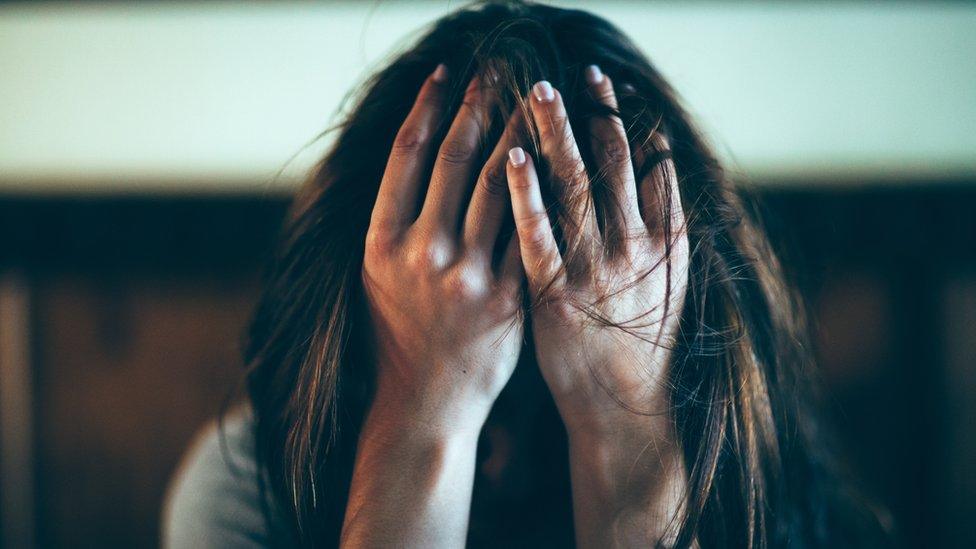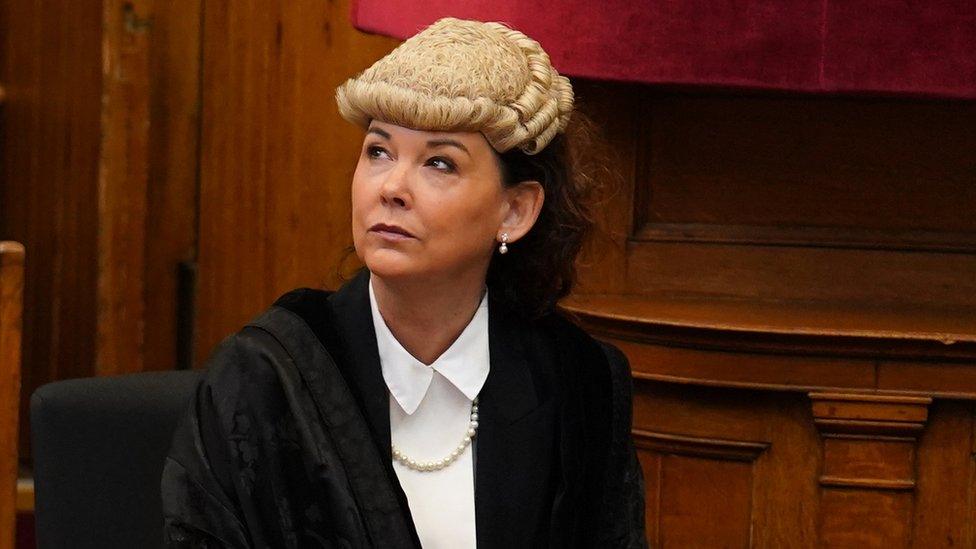Ruling could transform rape cases in Scottish courts
- Published

Campaigners have argued that the law has prevented many alleged rape cases from being prosecuted
A landmark ruling by senior judges could transform how rape cases are prosecuted in Scotland, the country's top law officer has said.
The panel of seven Appeal Court judges said that there will no longer need to be evidence from two separate sources that penetration has taken place.
Instead, evidence that the victim was distressed afterwards could be used to corroborate the rape allegation.
The court had been asked to examine the issue by Lord Advocate Dorothy Bain KC.
Rape trials in Scotland have previously required two sources of evidence for each part of the crime. Prosecutors needed to prove that the rape happened, that there was no consent, and that the accused was responsible.
Campaigners have argued that the requirement for penetration to be independently corroborated by a second source in addition to the complainer has acted as a barrier to rape victims receiving justice.
This can be because there are rarely witnesses to the act taking place, and many victims delay reporting what has happened to them - which means that it is not always possible to gather forensic evidence to prove that penetration occurred.
However, the judges have now ruled that evidence that an alleged victim was distressed and told someone shortly after the event that she has been raped is "capable of corroborating direct evidence from a complainer that she has been raped".
Witnesses saying that the complainer was distressed has previously only been able to corroborate a lack of consent but not that the rape happened.

The Lord Advocate said she wanted to deliver justice for women and girls who are victims of sexual violence
The Lord Advocate raised the case after a trial in Aberdeen last year in which a judge directed the jury that evidence from three witnesses that the alleged victim had been distressed and screaming that she was raped could not corroborate that rape had occurred.
The accused was cleared by a majority not proven verdict.
Responding to the Court of Appeal ruling, Ms Bain said she had "sought to do all within my power to deliver justice for women and girls, who are disproportionately impacted by sexual offences".
She added: "Today's decision has the potential to transform the way we prosecute all offences, in particular sexual offences, and will improve access to justice for more victims."
The Lord Advocate said the ruling would now be carefully considered by the Crown Office, with prosecutors taking time to consider what it means for their work.
The ruling was also welcomed by the Rape Crisis charity, who described it as a "seismic change" and added: "In England, if a woman is raped or sexually abused but does not report or undergo a forensic medical exam within a short timeframe, it is still possible for her case to get to court.
"In Scotland, this is far less likely. This isn't acceptable."
'Absolutely transformational'
Some lawyers have raised concerns about changing the law, arguing that evidence of distress "tells one nothing about the mode of assault".
In a submission to the court put forward by a legal team led by Roddy Dunlop KC, the Dean of the Faculty of Advocates, they argued that changing the law would remove vital safeguards against miscarriages of justice and "raise the real possibility of convictions which are simply not merited."
Thomas Ross KC, a former president of the Scottish Bar Association, told BBC Radio Scotland's Drivetime programme that the ruling was "absolutely transformational" and will "undoubtedly result in thousands of cases which couldn't have been prosecuted yesterday now being taken up for prosecution."
He added: "I don't think it will increase the number of convictions for rape, because all the cases that come to court have at least two sources of evidence and the court has said cases can now come to court with less evidence than they had before.
"Logic would suggest that if they bring cases with less evidence, it'll result in less convictions. But they will bring many more cases."
The Scottish government is looking to introduce further changes to rape trials in Scotland in a bid to increase conviction rates, including proposals to hold trials for serious sexual offences without a jury.
Instead, anyone accused of rape or attempted rape would stand trial before a single judge or sheriff, who would decide whether or not they are guilty.
Defence lawyers are concerned that the move threatens the right to a fair trial, and have said they will boycott the scheme.